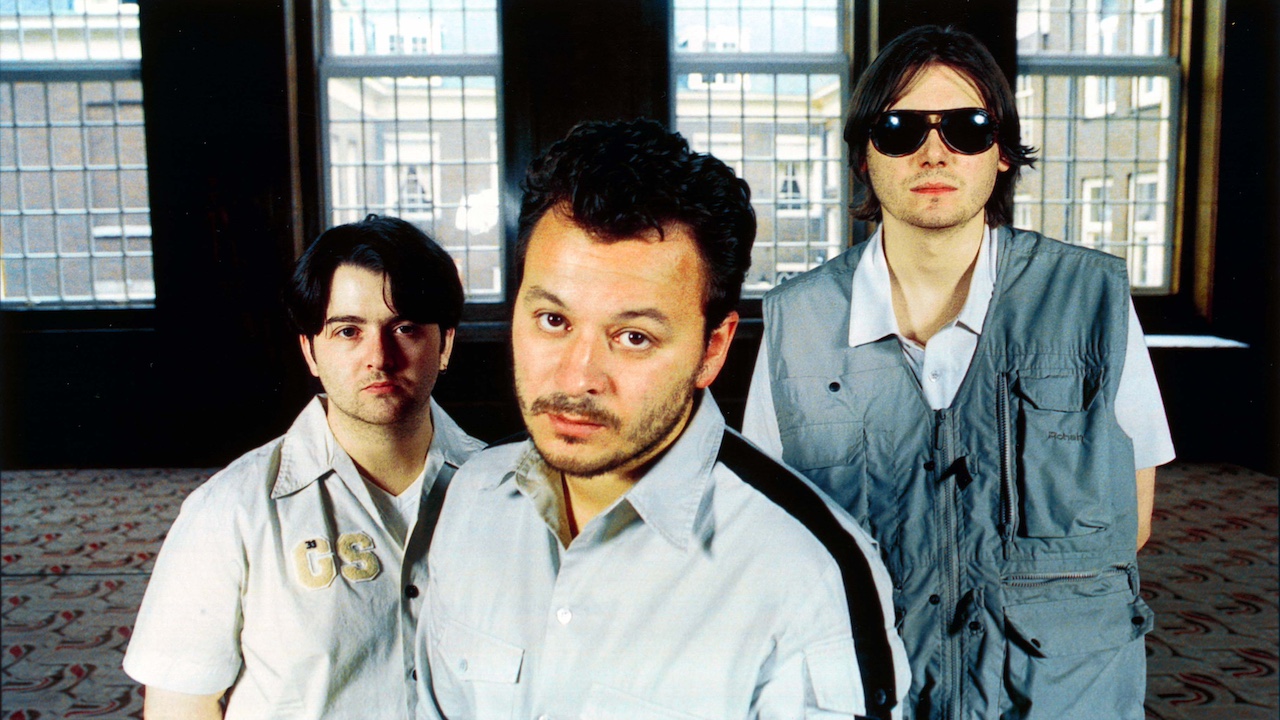
Their 2004 record Lifeblood changed everything for Manic Street Preachers, a diversion away from the anthemic bombast that had made them huge and into something more detached and considered. The Manics were never going to be a band who went through the motions to keep sales ticking over – even at their biggest, they released a song called South Yorkshire Mass Murderer, after all – but the epic folly that became Lifeblood ended an era for them, giving way to a period of contemplation over where to go next. A 20th anniversary reissue was announced this week and, far away from chart statistics and with two decades’ hindsight to call upon, Lifeblood now looks like one of the most pivotal releases of their career.
In 2021, singer and guitarist James Dean Bradfield told this writer how the way they approached making the record was a big departure from anything they’d done before. “It was the first time we'd ever really tried to not believe our instincts, to not believe our first ideas,” said Bradfield. “If we did a demo then we would go the opposite way and try and do it another way. If we wrote a song in a style, we'd say, ‘Okay, we got the song but let’s try and do it in a different style. Basically, we were switching off our autopilot and just trying to be a different version of ourselves.”
Bradfield recalled that even though it was met with lukewarm reviews and didn’t sell as well as their previous records, he has learned to find value in their seventh album. “I think the one thing that it did make me realise, even though there was a sense of failure commercially about the record and some people said that it didn't have that nailed-down-flag-in-the-ground anthemic quality which made them get off on the Manics, the more I listened back to it, the more I liked it.
"What's valuable about Lifeblood is the space where the words seem to colour the space around it. I love some of the words, I love the strangeness of the words of The Love Of Richard Nixon, the depth of the words. I love A Song For Departure, that's a lyric written in a dark night of the soul and the fact that Nick [Wire, bassist and lyricist] can be bothered to write words like that and give them to me and share that very personal darkness with somebody who wants to write music to it, that has been a privilege. The space around the words is there for a reason, they're there to try and describe the depth in the lyrics, the words are not so sure about theirselves. I think what I learned from Lifeblood was you can't base a whole album around that but sometimes it's really important to punctuate your albums with those moments where the space around the words are just as important as the density and the power of another song.”
In many ways, it set the Manics up for their next hugely successful phase, coming back roaring with 2007’s Send Away The Tigers. Lifeblood remains one of their most curious releases and one that you’ll be able to dive a little deeper into, with the new reissue filled with previously-unreleased demos and outtakes.







